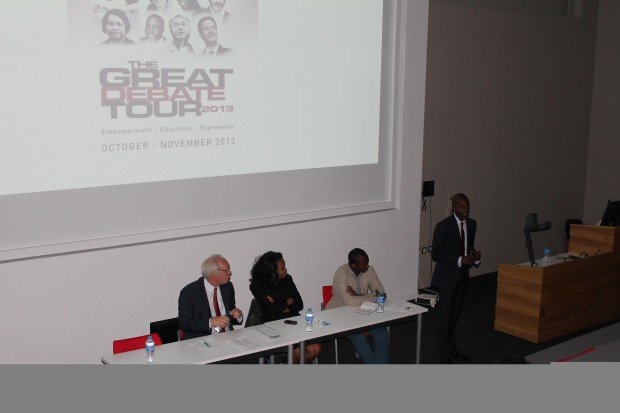As part of a celebration of diversity and heritage, the Great Debate Tour, one of the largest debating forums in the country, rolled into Lincoln on 10th October.

Founded in 2010, the Tour is the first debate forum which targets cultural communities on university campuses across the UK.
This week, in conjunction with the African Caribbean Society and Black History Month, the tour visited the University of Lincoln, provoking a lively discussion concerning issues of relevance in modern society.
With an esteemed panel including Scunthorpe Labour MP Nic Dakin, the tour tackled important matters such as immigration. The key question was whether eastern Europeans are taking the locals’ jobs, which in turn is possibly contributing to the high levels of unemployment.
Providing a forum for thought-provoking discussion and an opportunity for student voices to be heard, the tour moved on to discuss other concerns.
These included the struggle to integrate ethnic minorities into local communities, and most notably the pressing matter of voter registration. With this last topic came the statistic that only 40% of people aged 18-24 voted in the last general election, compared to 75% of over 65s.
Many members of the tour’s audience were part of the African Caribbean Society (ACS), a society dedicated to looking at and celebrating black history. Shanice Lewis, president of the ACS, spoke to the Linc about what the society do for Black History Month and what the society and black history means to her. She said:
“This Black History month, we’re [ACS] not just focusing on the history, we’re focusing on the present as well. It’s not just about what you would assume is black history, as it’s not just about African Caribbean history. It’s about other people’s history as well, for example Islamic history.”
She added:
“We’re soon doing a culture clash where we get everyone together and we’re watching a film called 500 Years Later. It’s an inspirational documentary about the history of black people and slaves, comparing where they were in slavery time and where they are now.”
“We’re also planning on going on a trip, maybe to the slavery museum in Liverpool.”
Lewis continued:
“I’ve been learning about black history since I started school. When I was in year six I started feeling a real passion for it, because all we learned about was British history.”
“I never really learned anything about my own heritage, so for me, black history is really important because it broadens my mind.”

